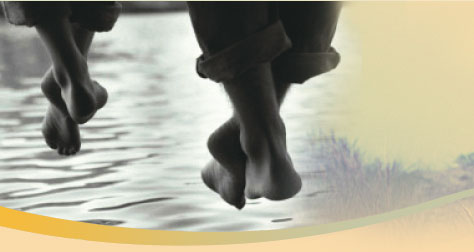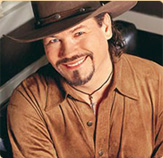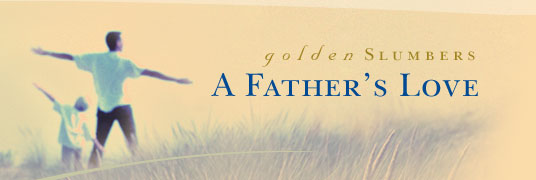 |
|
|
|
 |
Millions of viewers of the USA Network television series voted Buddy Jewell to be the next "Nashville Star." By the end of this summer’s Fan Fair festival in Nashville, thousands of attendees were proudly sporting buttons reading "Who’s Your Buddy?" A few weeks before that, Buddy Jewell became the first person in memory to debut at the Grand Ole Opry with a standing ovation. And the explosive performance of his true-story song "Help Pour Out the Rain (Lacey’s Song)" on the charts is yet another sign that The People are right. If there’s any more convincing to be done, one listen to his debut Columbia Records album should do the trick. Buddy’s burnished warmth of tone, expressive phrasing and subtle shadings prove that he’s a world-class country vocalist. Produced by superstar Clint Black, this is the recording of a master stylist with an enormous amount of country-music integrity. As he would be the first to tell you, he is just a man. In fact, it is probably his humble, everyday-Joe quality that has endeared him to so many. America looked at Buddy Jewell and saw itself. He has driven a beer truck, detailed cars, bagged groceries, been a door-to-door salesman, labored at UPS, worked on an airport runway, been a nightclub bouncer and sung for his supper in hundreds of grungy bars. He is part Cherokee. He was a football star. He is a husband, a father and a devout Christian. He’s steered his life to the edge of hell and bowed on his knees before heaven. He has struggled in obscurity and felt the sunshine of success. Buddy Jewell is a little bit of all of us. Buddy Jewell IS America. One of three children born to working-class parents, Buddy Jewell, Jr. was mainly raised in Osceola, Arkansas. That’s not far from Johnny Cash's hometown of Dyess or Conway Twitty's boyhood home of Helena, and Buddy has relatives who knew both of those families. Glen Campbell, another of Buddy’s favorites, hails from Delight, Arkansas. Buddy’s father led him to love the sounds of Marty Robbins and Johnny Horton, who became two more influences on his music. His Uncle Clyde taught him to play "What a Friend We Have in Jesus" on the guitar. Enthralled at age fifteen, Buddy taught himself to perform Cash’s "I Still Miss Someone," a number that remains in his stage repertoire to this day. "My vision has always been kind of poor, so I wore really thick glasses when I was a kid," Buddy reports. "When we moved to Osceola when I was ten, all the kids were growing their hair long, and here I am with black Coke bottles on and a buzz-cut, military-issue haircut. They teased me unmercifully. Didn’t take me long to get in my first fight. But I was smart. I graduated fourth or fifth in my class and got an academic scholarship to Arkansas State." He was the quarterback of his high school football team and continued to play ball in college. He majored in radio/TV, yet music began to take hold. Buddy had forsaken country music as a teenager, but the advent of Alabama in the early 1980s turned him around. He began to play the songs of that band, as well as the music of Don Williams, to his fraternity buddies. He entered a college talent contest singing the Dave Loggins' hit "Please Come to Boston" and Michael Martin Murphey’s "Wildfire." “And that’s kind of when I really got bit by the bug,” says Buddy. “But I left college in the middle of my junior year to get married. When I started playing the club scene in Little Rock just prior to turning 21, my wife at the time didn’t like that one bit, so the marriage only ended up lasting two and a half years.” A year later, a Little Rock club owner introduced him to the country band White Oak, which was seeking a new lead singer. With Buddy as its frontman, White Oak joined a stable of bands at a booking agency that also represented Canyon, Lariat and Bayou Speak Easy, the last of which was fronted by a then-unknown Trace Adkins. All four groups worked the lucrative Texas nightclub circuit. White Oak was playing the Country Connection in Irving, Texas on July 31, 1987, when two girlfriends started eyeing the band’s charismatic lead singer. "I was the focus of a bet," says Buddy with a chuckle. "Tené bet her girlfriend that she could get me to dance before Sally could. And Tené won the bet. God knows she probably wishes she had never done that! We dated for the next year-and-a-half, and we married on December 20, 1988. Little Buddy came along on September 9, 1989, so we didn’t even have a chance to be newlyweds long." White Oak fell apart, and Buddy Jewell worked as a single act in clubs before auditioning to work at the Six Flags Over Texas amusement park in 1990. "Right across the street from us in the park was the gunfight show with an old-jail façade. And it was a really funny show to watch. So I would go over there between shows and hang out with the guys over there. And they were this rough kind of bunch. One day a guy was out, and they called and asked, 'Do you want to do some shows with us?' I said, 'Sure,' and wound up doing the gunfight show for about three years. Had a great time. It was like the Marx Brothers or the Three Stooges. The country show had wanted me to cut my hair. This way, I could wear my long hair and not have to worry about it. After the gunfight, I’d change clothes, spray on a lot of cologne and deodorant and go to the White Elephant to play four or five nights a week." In 1991, Buddy won a talent contest sponsored by super group Alabama and opened for the group alongside Mark Chesnutt and Ricky Van Shelton. The following year, he competed on TV’s “Star Search,” winning Male Vocalist on several episodes. His success on the show emboldened Buddy to try his luck in Nashville. But, before moving, he had to confront his personal demons of alcohol and drug abuse. “All those years in Texas, everyone was drinking and doing drugs and doing stuff you shouldn’t be doing, all the while thinking that someone was going to show up and offer us a record deal.” “As a Christian, my conscience was laying heavily on me. I wasn’t being the kind of man and father I should have been. I was spiritually, physically and emotionally sick. With Tene’s help and AA, I was able to stop.” Buddy Jewell has been clean and sober for ten years now. And those ten years have been the most professionally difficult of his career. Instead of instant fame, he was confronted by a brick wall of rejection by all of Music Row’s record companies. Tené’s nail-beauty business sustained them until he began to make a living singing "demo" tapes that songwriters use to get stars interested in their works. George Strait’s "Write This Down," Lee Ann Womack’s "A Little Past Little Rock," Clay Walker’s "You?re Beginning to Get to Me" and Gary Allan’s "The One" were all first sung as Buddy Jewell demos. He has recorded more than 4,000 such tapes. In 1997, alone, he sang 663 song demos. He sang on the Broadway Dinner Train. He did showcase performances for every record label in town. One of them was on the day of the disastrous Nashville tornado of 1998. One led to an offer from a label that went out of business. Another interested company got sold. "They all passed me by. For whatever reasons ? tornadoes, floods, record labels going out of business ? I’ve floundered here for ten years. At this point in my career, I didn’t think I had anything to lose." Daughter Lacey had come along in 1993, followed by his second son Joshua in 2000. Buddy Jewell sang on CDs by Bill Engvall (1998) and Ray Price (2002). But after a decade of professional frustration, he was ready to give up on his quest for a recording contract until he heard about the “Nashville Star” auditions. "My philosophy has always been this: God didn’t give me the gifts that he gave me just to be a demo singer. I just never could bring myself to really believe that. But about three years ago, I prayed, 'I've tried everything conceivable to get a record deal, and apparently that’s not what You want for me. I’m cool with it. I’ll sleep in my own bed, see my kids when I wake up every day, be the best demo singer I can be and try to be a good example to people of perseverance. Or whatever it is You’re trying to teach me.’ "I almost didn’t go to the audition. I called Tené that day and said, 'you know, I don’t think I'm going to go do this “Nashville Star” thing.' I was concerned about getting onto the show, moving into the house and spending that much time away from my family - leaving that burden on Tene. But she said, ‘You know what? We came here for you to do your music, and if you’re not going to do that, we might as well pack up and go back to Texas. Just go do it, and if it’s supposed to happen, it will.’ "I thought, 'Well, okay. If I get on, I’ll maybe last a couple of weeks, get some exposure and sell some CDs on the website. It’s only a matter of time before I’m gone.’" More than 8,000 performers tried out for the show; 125 of them made it to the semi-finals; twelve were chosen for the nine-week series. And on the last episode, the big man with the big heart wept openly on national TV. Buddy Jewell is more than a "Nashville Star." He is the American dream. For the album "A Father's Love" , Buddy sings a very moving version of the Grammy Award Winning song "Dance With My Father" written by Luther Vandross and Richard Marx Please Visit: http://www.BuddyJewell.com To The Top |


